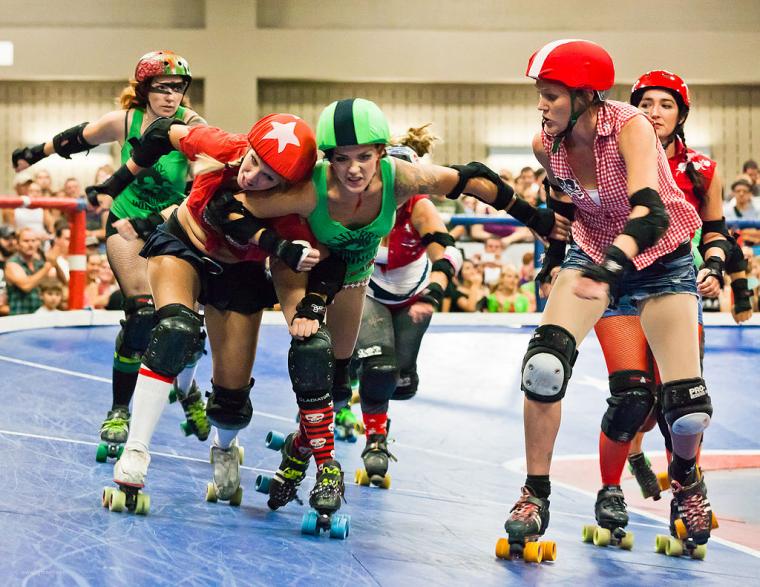
The Women’s Flat Track Derby Association is the international governing body for the sport of women’s flat track roller derby and a membership organization for leagues to collaborate and network. The WFTDA sets standards for rules, seasons and safety, and determines guidelines for the national and international athletic competitions of member leagues. There are currently 381 WFTDA member leagues and 66 leagues in the WFTDA Apprentice program. A full schedule of WFTDA’s regional, national and international events can be found on the website.
Sports Destination Management: The sport of roller derby is very popular in the U.S. Are you seeing growth on the international level as well?
Jenna Cloughley: We are seeing a lot of it, and one of the emerging regions is South America; it’s growing at a very quick pace. I just went over to Buenos Aires and there is a very strong skating culture down there – there is practically a league in every neighborhood. Chile has 14 leagues. Colombia has its own national competition. Europe has grown a lot as well. But currently the United State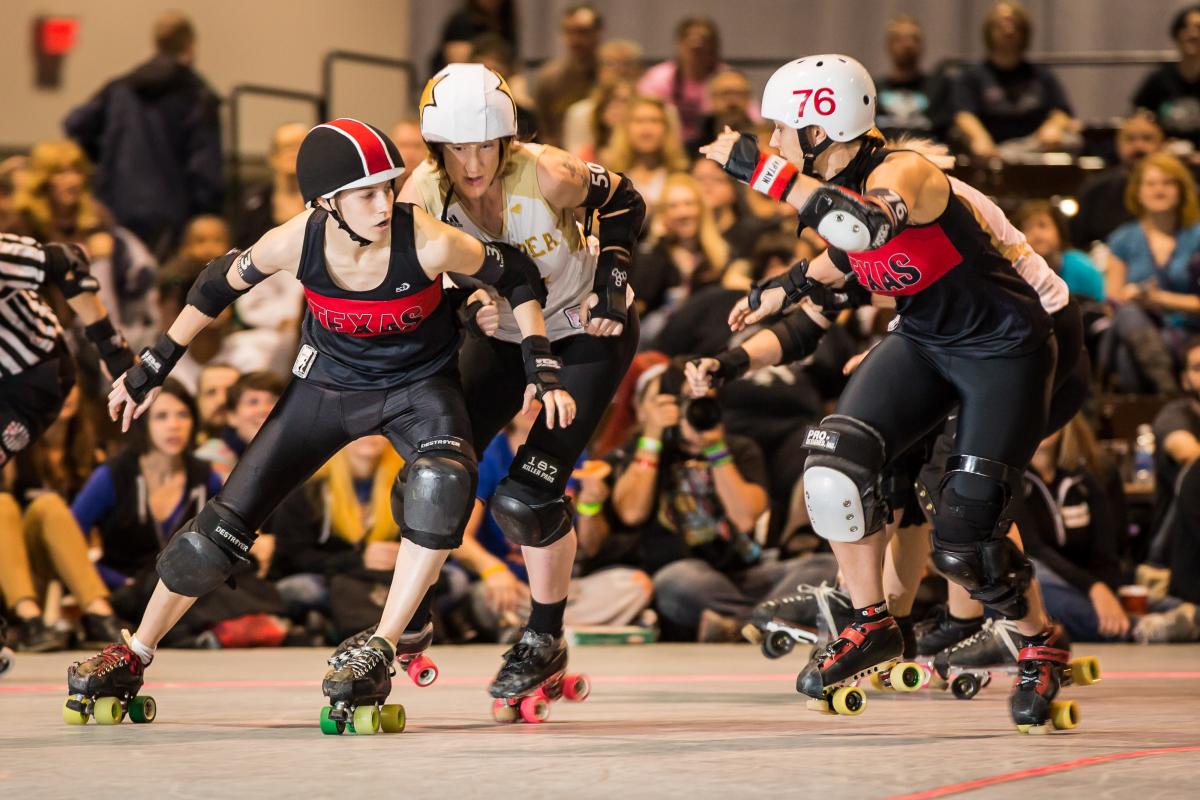 s is the biggest market.
s is the biggest market.
SDM: Is roller derby easy for cities to host?
Karen Kuhn: You can really have it anywhere you have a flat surface.
SDM: WFTDA puts on a number of playoffs at the regional, national and international level. What are you looking for in cities interested in hosting these events?
Cloughley: For our playoffs and championships, we look for areas where our international competitors can fly into as easily as possible. A lot of cities are desirable for travel but we want to make it a destination on top of a competition. We do have an RFP process as well.
By the way, this year is the first time we are having playoffs in Europe. In the past, people always came to us.
SDM: When you’re looking for a facility to host, what are you taking into consideration?
Kuhn: We need a venue that can fit our track. We have to worry about the floor because we’re skating on it, but we can put down Sport Court ® if needed. We need to have broadcast capabilities as well.
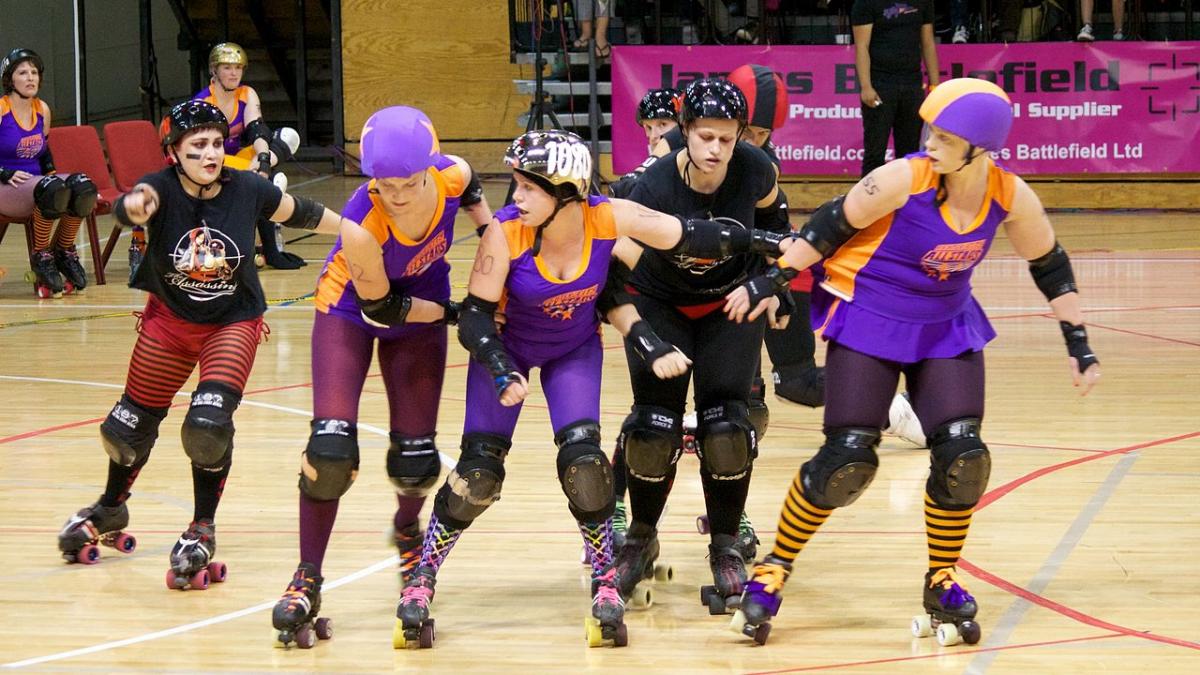 SDM: Do you think roller derby will be in the Olympics?
SDM: Do you think roller derby will be in the Olympics?
Cloughley: That’s actually a question we get asked pretty often. We have very different policies and mission statements from the IOC. Ultimately, we would like to see the sport showcased at the highest level possible, but our organization is unique in that it is athlete-driven. We would have to talk with our members and find out whether the Olympics would be something they want to pursue. If we wanted to go in that direction, we could, but again, it would depend on our members.
SDM: Roller derby has traditionally been an adult sport; do you have any idea whether there is participation at the youth level?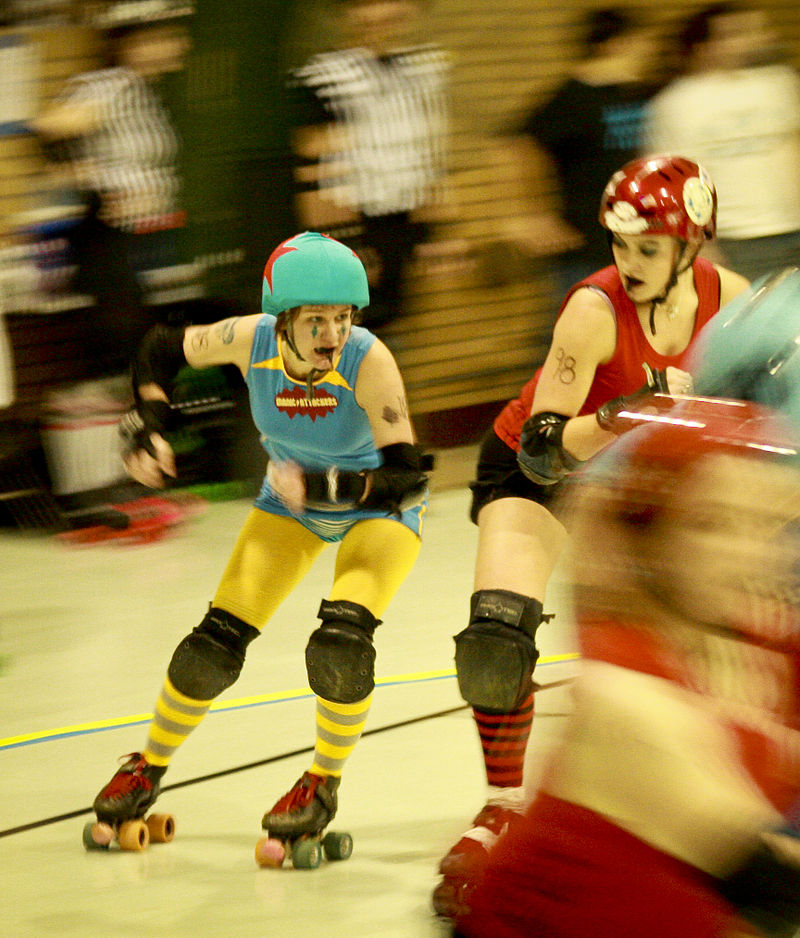
Cloughley: It is absolutely growing at the youth level. In fact, we just finished working with the Junior Roller Derby Association (JRDA) to create a new set of rules. Youth is definitely a growth area.
SDM: Do men skate as well?
Cloughley: Yes - there is also a Men’s Roller Derby Association.
SDM: You mentioned having creating rules; is that something WFTDA does on a regular basis?
Kuhn: Yes, we work with our athletes on that. They vote on any changes or adaptations. You could say we keep the democratic voice of our athletes involved in every decision we make.
SDM: What kind of spectator numbers does roller derby get?
Cloughley: For championships, we can get 5,000 to up to 10,000, depending on the size of the venue. We work with the local leagues for whatever city we’re in, and we do a lot of marketing that way. We also try to explain the sport to the city and let them know what it can bring in.
SDM: Any idea of the economic impact?
Cloughley: Not really because it depends on each league’s structure. Some are set up as non-profits and some are for-profits.
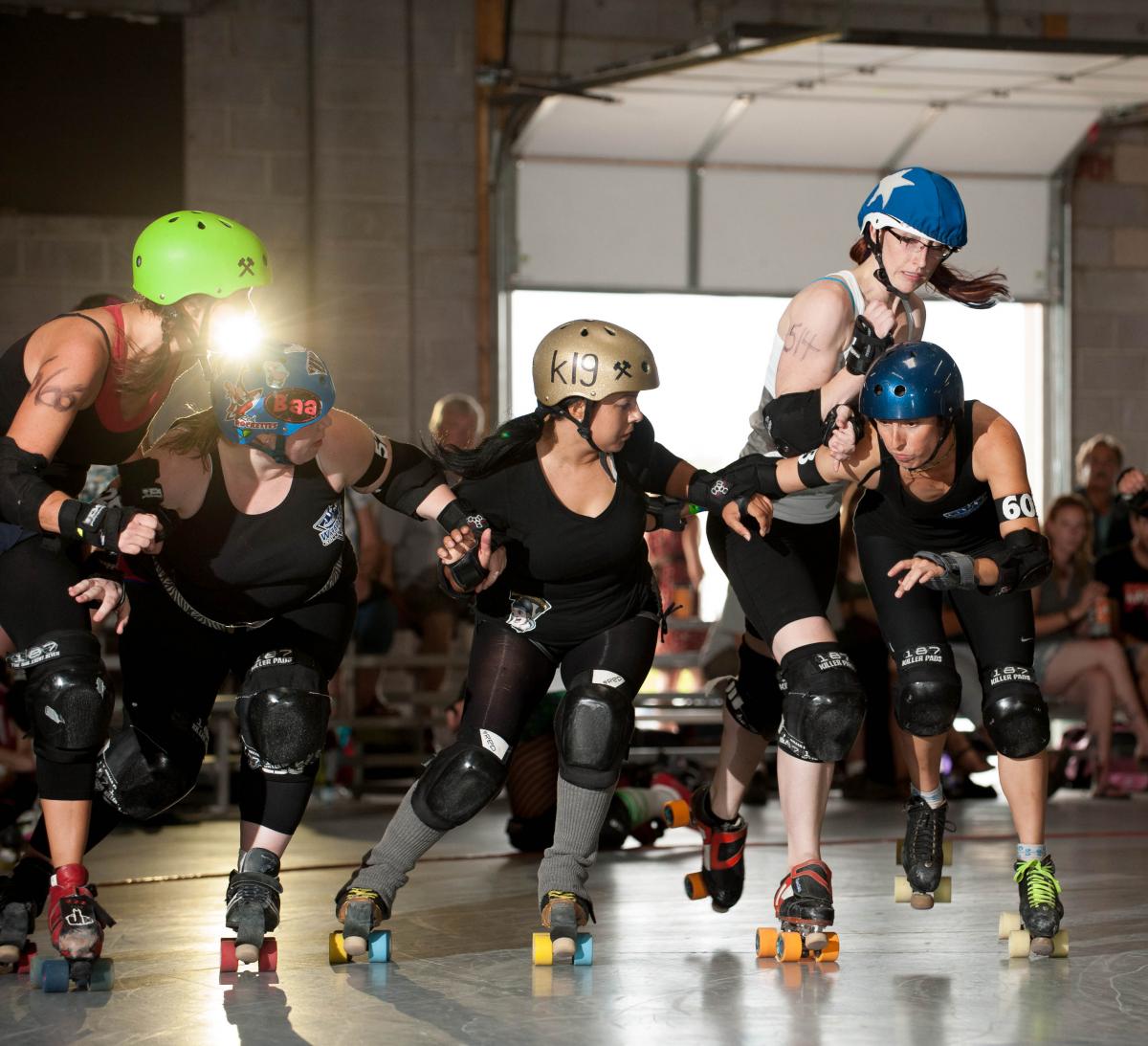 SDM: Roller derby is a rough sport and safety is a priority for the league.
SDM: Roller derby is a rough sport and safety is a priority for the league.
Kuhn: We take our athletes’ safety very seriously; in fact, it’s one of the things we focus on. We have very strict protocols when it comes to concussions, even though everyone is wearing a helmet. We have EMTs and trainers at our events, and they know what to do if a concussion is suspected. At the juniors level, there are additional safety requirements because you’re dealing with children. We have online safety training for our members and we have an insurance program we administer. One of the first things you learn is how to fall correctly. After a while, it becomes second nature.
SDM: What are people surprised to learn about roller derby?
Cloughley: That it’s not a race where violence is allowed, and that you can’t throw elbows or trip people on the track. That’s something a lot of people think happens, and it doesn’t. They also think we use inline skates; we use the quad skates, and we use a flat track, not a banked one.
SDM: When people come to roller derby, what other sports have they done before?
Kuhn: Some people come from speed skating or hockey. Definitely, we see more people who have skated before but we can help people learn the skills they need. We have what we call going from zero to hero in six months. Many leagues have what we call our fresh meat program, which is another way to say new skater intake. Fresh meat programs teach skating skills, derby rules and everything else. You don’t just sign up and go out on the track and skate in bouts.
SDM: How long do people generally stay in the sport?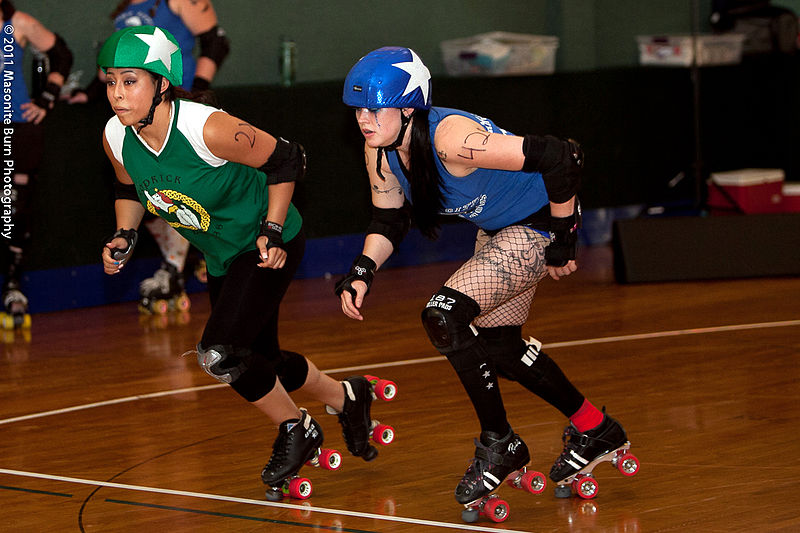
Cloughley: The median is probably five years. I am a unicorn in that I’ve been doing it for 12 years. The age group starts at around 18 and goes up to 35. We have someone who is 67 who is still skating in Toronto, though; there are no age limits.
SDM: What is the commitment to the sport like?
Cloughley: You are training two to three times a week, plus you have actual competition. You also volunteer for your league. It becomes a really important part of your life. It’s intense and it’s fun but people really have to be committed to it.
Kuhn: Jenna is going to do it forever.

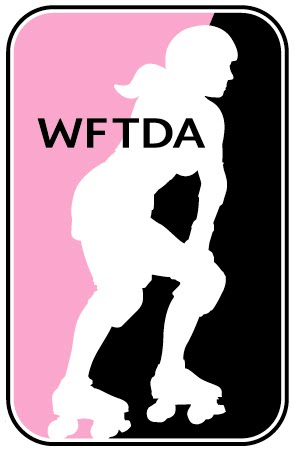 wftda.com
wftda.com